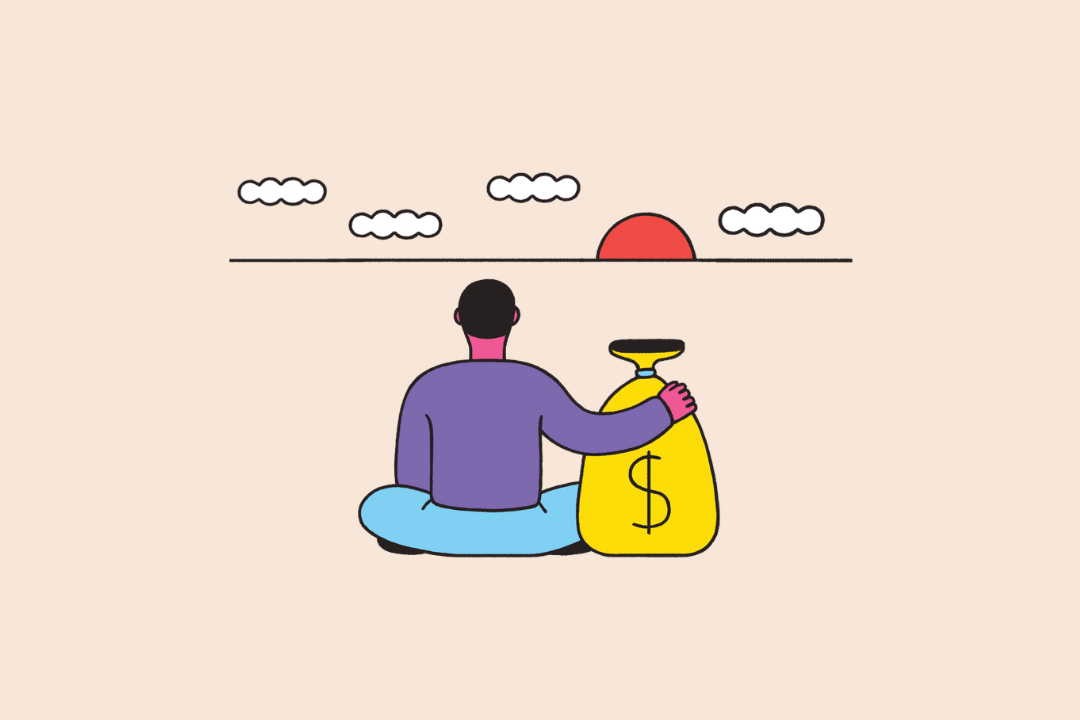What does happiness mean to you? Happiness can be long term or short term and can have different origins. For me, it’s sunsets, cats and dinner with my closest friends. For you, it might be desserts, shopping, securing a seat in a reputed college, getting a well-paying job, or even moving out - and if we think about it, all of these activities require financial support.
When we say money cannot buy us happiness, we seem to focus solely on the feeling. But the truth is that a loaded bank account means liberty, security and privilege. It means comfort (and maybe even luxury) that does invariably result in happiness.
Maslow’s Hierarchy of Needs depicts people’s needs for motivation in hierarchy. And while the tip of the triangle is self-actualization, which means realisation of a person's potential, seeking personal growth and peak experiences (Maslow, 1943) - the bottom end of that triangle houses the physiological needs for motivation : the key biological requirements for human survival, e.g. air, food, drink, shelter, clothing, warmth, sex, sleep. If we think about it, almost all of these physiological needs require money.
Every time my relatives asked me to choose a career that was more stable and better paying than that of a psychologist and I questioned their advice, they justified it with a simple “Tumhari khushi ke liye…” (for your happiness). Maybe from their perspective, they weren’t wrong. We need money because it brings with it a higher status, and better opportunities. We need money to take care of our physical and mental health (yup, we know therapy isn’t cheap), and we need money for our favourite self-care routines.
A research study conducted in 2021 collected 1.7 million data points from more than 33,000 participants through an app, Track Your Happy. It provided in-the-moment snapshots of their feelings during daily life, which collectively gave the study a stop-motion movie of the participant’s lives. The app had check-in times randomised per participant to measure experienced well-being. Each check-in asked them, “How do you feel right now?” on a scale ranging from “very bad” to “very good.” At least once during the process, participants also answered the question, “Overall, how satisfied are you with your life?” on a scale of “not at all” to “extremely.” This allowed the researchers to get representative samples of the moments of people’s lives.
The results of this study suggested that all forms of well-being continued to rise with income. The more money you earn, the better your evaluative (overall satisfaction) and experienced (feeling at the moment) well-being is.
Through the study, Killingsworth deduced that higher earners are generally happier, because of an increased sense of control over life. “When you have more money, you have more choices about how to live your life. People living paycheck to paycheck will lose their job and might need to take the first available job to stay afloat, even if it’s one they dislike. People with a financial cushion can wait for one that’s a better fit. Across decisions big and small, having more money gives a person more choices and a greater sense of autonomy.”
Keeping this in mind, money is important but it doesn't have to be the only source of happiness. Killingsworth also found that people who equated money to success, people who earned more money by working longer hours, or people who felt more pressed for time were favourably less happy than those who didn’t.
This blog is not to justify that only money plays an important role in our happiness as much as it is to acknowledge that the degree of financial privilege in our lives really matters. Money is a very helpful tool that makes happiness and wellness an easy achievement.
In that case, we are looking past a disadvantaged person’s helplessness and problems when we say money can’t buy them happiness. Because…well, it can. It might feel more optimistic to think that we can be happy come what may, but the discrimination we face based on how much money we earn is massive. Money decides the environment we grow up in, the ways we cope with stressors, and the kind of friends and relationships we make over time and in a world which functions on capitalism, it’s hard not to give money the importance it deserves (and should have)!
Money Can Buy You Happiness Money Can Buy You Happiness







